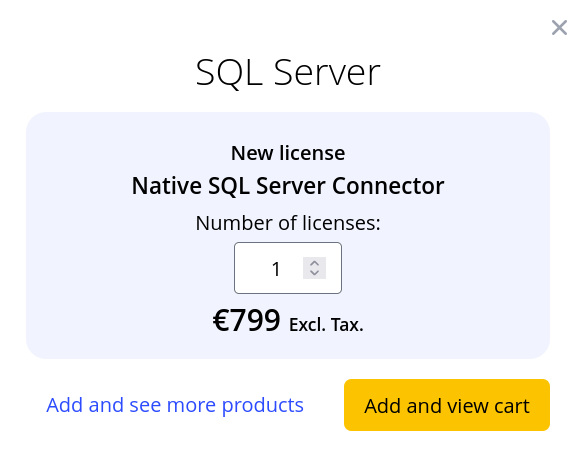Actually we are already using the version with Dongle so for us the initial payment is not applicable. But the freedom to use WX from any PC without having to carry the dongle is very important for us.
Actually paying 1068 a year can prove to be painful if you are just going to use WX for maintenance. But we have been paying similar fees every year for upgrading to new version.
And WX releases a new version every year!!
We have ported 3 apps originally build in Xojo actually Realbasic. And we have never looked back to Xojo/Realbasic. In face the apps created in WX has such a professional feel that our clients were surprised when we gave them the first Beta for testing.
Yes paying for DB connection can prove to be an expensive thing especially if one is using a commercial RDBMS like MS SQL Server. But we generally prefer to use PostgreSQL or MySQL in most cases. And the native drivers for these are free.
In one case we had to interface with MS SQL Express for fetching some data and for that we used OLE DB (which is support by default) as a way to connect for free.
And if you like ODBC, it is always handy when accessing commercial RDBMSs from WinDev.
I think this page will surely interest some of you.
Yes, very familiar and they do release plethora of new features in controls, language, built in functions, etc. Not every thing is perfect here also.
For example when they released the first version of Office controls that is Word processor and Spreadsheet controls they were a farce as many stated features very buggy and unusable. But in the next update most of the those bugs were ironed out and we have managed to integrate these controls in one of our app for ISO management where control on quality documents is very tight and ever update to the documents has to be versioned and approved.
These two controls alone help us get rid of being dependent on MS Office and unnecessary OLE automation programming of these. Now we supply a tool that has a powerful word processor and spreadsheet features that match with MS Office counter parts.
Actually we have benefited a lot from using WX for building various solutions. And our total cost of ownership has gone down by multiple folds compared to Xojo, Delphi and VB6. Coz in case of all of these we had to buy lots of third party controls/components just to get the feature that our clients were looking for. But in case of WX we have most of them provided for out-of-the-box!
